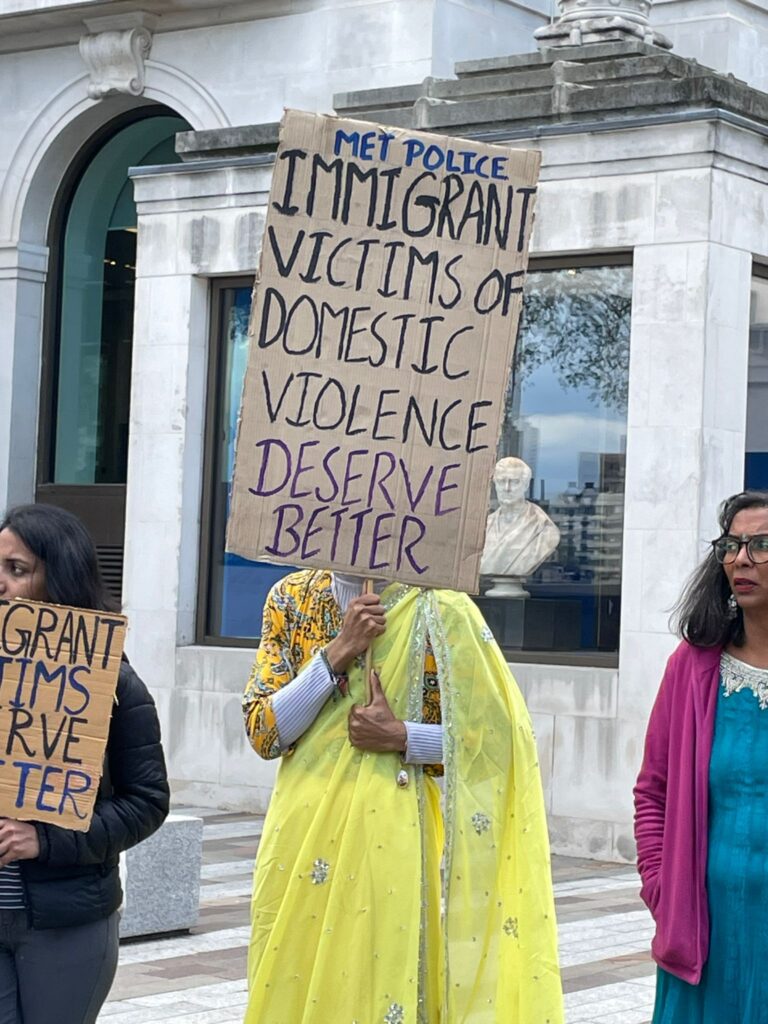“End Austerity Now” protest (Credit: Alan Stanton)
Shortly before he entered 10 Downing Street as Prime Minister, David Cameron declared: “the age of irresponsibility is giving way to the age of austerity.”
Thirteen years on from this landmark statement of intent from the incoming 2010 Conservative-led coalition, youth services have been decimated and for many working in or dependent on them, it was an age of catastrophe.
Despite overwhelming challenges, Youth Justice Practitioners (YJPs) have continued to work tirelessly to aid troubled youngsters.
One such practitioner is Mark Gadsden, who works at Havering Youth Offending Services, on the outskirts of East London.
Gadsden first decided to enter youth work when he noticed a group of rowdy teens from a local estate went unwelcomed in his church.
“I would sit up on the church balcony with them and try to get through to them,” he says. “Most people in the congregation would just shush them, but I think you have to practise what you preach.”
Since then, Gadsden has spent 10 years working with church and faith-based youth organisations. He has been with Havering Youth Services for 18 years and counting, where he now works as a manager.
Gadsden notes that there are now only three youth clubs in Havering whereas there used to be about twenty. As a result, fewer and fewer underprivileged youth have access to healthy outlets and activities.
“Places like those used to be universally accessible for anyone who needed them, such as kids from disadvantaged or low-income backgrounds. What’s left has to be more targeted in terms of who can use them,” Gadsden laments.
Gadsden sees these cuts as counterintuitive and detrimental to London’s youth.

“Take a football team, for example. If a club invests in the best trainers and physios, then that team can go on to win the league. It’s the same in any field. Greater investment in staff and the ability to train them up more would be a great help to young people using our services. They’re the next generation and society as a whole would benefit from the investment,” he posits.
Coincidentally, Havering Youth Offending Services used to employ a coach to run both boys and girls football teams, with the most promising players being scouted for local semi-professional teams.
With funding drying up, this is no longer possible for the team at Havering.
£1.1 bn in funding for youth services has been slashed since 2011. Spending on such services totalled £1.48 bn for 2010-11. By 2021, this had plummeted to just £379m – a 74 per cent decrease in real-terms expenditure, according to figures compiled by the YMCA in 2022.
This has coincided with a noticeable uptick in the number of knife crimes recorded in the UK since 2011, a rise of 34 per cent, according to the Office for National Statistics (ONS).
Not all of these offences are committed by young offenders, but headlines in recent years have been dominated by assaults and murders carried out by young people.
Scant resources and an increasingly dense workload means that working in youth services can be a demanding job.
Since austerity began, the average number of practitioners per borough has fallen from 48 on average to a mere 15. In the entirety of Havering, there are now just four.
Though the quantity of staff may have declined, those who remain are striving to rise to the challenge. They are both flexible and sacrificial with their time in order to provide support and rehabilitation for as many of the borough’s young offenders as possible.
Each practitioner currently oversees between 16-17 cases, at times rising to 22.
“If you want a nine to five, don’t work in youth services,” Mark quips, clearly proud of the commitment his team maintains to making a difference in young people’s lives, despite the myriad of setbacks their department has faced over the last decade.
One such team member is Deborah McCarren, who states that the job demands not just time but often the sacrifice of one’s psychological well being. She recounts numerous occasions where youths she works with are painfully aware that there is now so little she can offer them in terms of support.
“They can see on our faces sometimes that there’s not much we can offer,” she explains. “Some get so disheartened.
“I’ll have been working with someone since adolescence and nothing’s changing for them. It actually makes me feel angry sometimes. Why are this generation coming through and it seems they don’t have much in the way of hope or prospects? It takes a toll on our mental health.”
Nonetheless, McCarren pursues any victory for her wards, no matter how small it may seem.
“We work with what we can. If they are in school, for example, we focus on how we can keep them there.”
Like many public services in Britain, the difficulty of a YJP’s position is compounded by frequent government-imposed shake-ups, as successive administrations seek to make their own mark on the landscape of public life.
“What we need is a clear government vision, and to hear directly from young people who use these services on how to make them better,” asserts McCarren.
Of course, both Deborah and Mark also stress a need for sufficient funding and spaces for young people to foster positive relationships and learn skills that they can use to build a brighter future.
Unfortunately, the possibility of this looks increasingly slim, as Havering Council alone has an over £70m budget deficit which will need to be remedied, likely in the form of more cuts.
Nevertheless, the team at Havering Youth Justice remain resolute in their commitment to deliver the highest quality support and rehabilitation possible, for as many as possible.
You may also like: Empowering children to take control of the climate crisis









